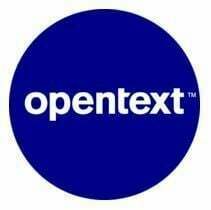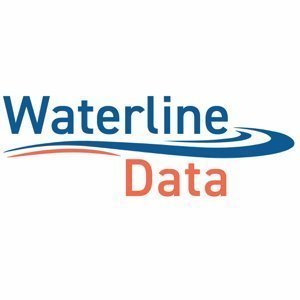4.25
Oracle Endeca Review
Explore our Oracle Endeca review covering features, pricing, security, and updates. Assess its support and value for money. See if it fits your needs!

Comprehensive overview and target audience
Oracle Endeca, now largely integrated into Oracle’s broader Commerce and Experience Cloud solutions, fundamentally provides sophisticated information discovery and guided navigation capabilities. It empowers users to explore complex and varied data sets intuitively. Originally renowned for its powerful faceted search technology, Endeca allowed businesses to create rich, interactive user experiences, particularly vital for large scale ecommerce sites and complex product catalogs. Users could dynamically refine search results based on multiple attributes, making finding specific information or products efficient even within massive data volumes.
The primary target audience for Oracle Endeca technology, whether as a standalone legacy implementation or within Oracle’s current cloud offerings, remains large enterprises with significant data complexity. This typically includes:
- Retailers and ecommerce businesses managing extensive and diverse product inventories.
- Manufacturers dealing with intricate parts catalogs and B2B sales platforms.
- Distributors requiring robust search across partner data and product lines.
- Organizations needing advanced internal knowledge discovery from unstructured or semi structured data sources.
Evaluating the Oracle Endeca value for money requires considering its specific strengths in handling complex data models and providing guided navigation, capabilities often crucial for these large organizations. While direct Oracle Endeca pricing comparison is difficult without engaging Oracle sales, potential buyers should compare its total cost of ownership against other enterprise grade search and experience platforms, factoring in implementation and ongoing maintenance. Prospective customers often weigh the investment against the potential gains in conversion rates, user satisfaction, and operational efficiency derived from superior search and discovery.
Regarding Oracle Endeca updates and new features, while the original Endeca brand is less prominent, its core technologies continue to evolve within Oracle’s CX Commerce and other relevant cloud platforms. Customers should look towards these broader Oracle solutions for the latest innovations. Robust Oracle Endeca security features are integral, leveraging Oracle’s comprehensive security infrastructure to protect sensitive data and ensure controlled access, often including role based permissions. Furthermore, extensive Oracle Endeca support and training resources are available through Oracle’s official support channels, documentation libraries, partner ecosystem, and Oracle University, ensuring businesses can effectively deploy and manage the technology.
User experience and functional capabilities
Oracle Endeca excels in creating a sophisticated user experience centered around data discovery and guided navigation. Its historical strength lies in transforming complex datasets into intuitive exploration paths for users. Oracle Endeca user experience insights often highlight the power of its faceted search; allowing individuals to dynamically refine results across multiple dimensions. This makes finding specific products or information within vast catalogs feel less like searching and more like guided discovery, significantly enhancing user satisfaction particularly in ecommerce environments.
Functionally, Endeca is engineered to ingest, model, and index diverse data types, making unstructured or semi structured information accessible and usable alongside traditional structured data. Understanding how to use Oracle Endeca from an end user standpoint is typically straightforward due to its visual nature. Users interact with filters and attributes presented clearly, progressively narrowing down options without needing complex query language. The platform dynamically updates results with each selection, providing immediate feedback and maintaining context during exploration.
However, achieving this seamless user experience requires significant technical effort during setup. Following a detailed Oracle Endeca implementation guide is crucial, as the process involves complex data modeling, attribute configuration, and performance tuning. Common problems with Oracle Endeca often stem from inadequate data preparation, complex integration requirements, or underestimating the expertise needed for initial configuration and ongoing maintenance. Proper planning and skilled resources are essential for a successful deployment that fully leverages its capabilities.
Integrating Oracle Endeca with other tools is a key consideration, especially given its evolution within the larger Oracle ecosystem. While powerful standalone, its value increases when connected to CRM, ERP, or broader Oracle CX Cloud applications, creating unified customer profiles or enterprise knowledge bases. Regarding Oracle Endeca updates and new features, organizations should primarily look towards the advancements within Oracle’s Commerce and Experience Cloud platforms where the core Endeca technology continues to be developed and enhanced, rather than expecting standalone Endeca branded updates.
Implementing best practices for Oracle Endeca is vital for maximizing return on investment. This includes meticulous data governance, continuous relevance tuning based on user behavior analysis, and performance monitoring. Defining clear business goals for the search and discovery experience ensures that configuration efforts align with desired outcomes, such as improved conversion rates or faster access to internal information. Effective training for both technical teams managing the system and business users leveraging its insights is also paramount.
Who should be using Oracle Endeca
Oracle Endeca technology, particularly its powerful data discovery and guided navigation features, is best suited for large scale organizations grappling with significant data complexity and volume. Its core strengths align perfectly with enterprises that need to provide sophisticated search and exploration experiences, often where standard search solutions fall short. If your organization manages vast amounts of varied information and requires users, whether customers or employees, to effectively navigate this data, Endeca should be a strong consideration.
Specifically, the ideal candidates typically include:
- Large ecommerce retailers: Businesses with extensive product catalogs featuring numerous attributes and variations benefit immensely. An Oracle Endeca use case scenario here involves enabling customers to intuitively filter through thousands of products using faceted navigation, significantly improving product discovery and conversion rates.
- Manufacturers and Distributors: Companies dealing with complex parts catalogs, intricate B2B relationships, or extensive supplier data find Endeca valuable for internal search and customer facing portals.
- Content Rich Enterprises: Organizations with large knowledge bases, digital libraries, or complex internal documentation systems can leverage Endeca to make information more accessible to employees or constituents.
It is important to recognize that successfully implementing and managing Endeca requires considerable technical expertise and resources. The platform’s power comes with complexity in setup, data modeling, and ongoing maintenance, as highlighted in the user experience. Therefore, organizations considering Endeca must be prepared to invest not only financially but also in skilled personnel or partner support. Adhering to Best practices for Oracle Endeca, such as rigorous data governance, continuous relevance tuning, and performance optimization, is not merely recommended; it is essential for achieving the desired return on investment and delivering a truly effective user experience. Smaller businesses or those with simpler data structures might find the overhead prohibitive compared to alternative solutions.
Unique Features offered by Oracle Endeca
Oracle Endeca distinguishes itself primarily through its highly flexible and powerful approach to data discovery and user experience customization. Its most unique feature remains the sophisticated faceted search and guided navigation system. This allows businesses to transform complex datasets into intuitive exploration paths, enabling users to refine searches dynamically across numerous attributes without needing specialized query knowledge. This precise control over the discovery process is central to Endeca’s value proposition.
The platform offers extensive customization options. Customizing Oracle Endeca for business growth involves tailoring the data model precisely to specific business needs, defining custom attributes, and configuring relevance ranking rules to prioritize results strategically. The Endeca Experience Manager component, historically, provided powerful tools for business users to directly control aspects of the front end experience, such as creating targeted promotions, managing landing pages, and setting up rules for cross selling or up selling without deep technical intervention. This level of business user control over the search and navigation experience is a key differentiator.
Further unique capabilities include:
- Advanced relevance tuning based on sophisticated algorithms and business rules.
- Support for complex data types including unstructured and semi structured information alongside traditional data.
- Tools for managing synonyms, thesauri, and keyword redirects to improve search accuracy.
- Personalization features allowing experiences tailored to individual user behavior or segments.
Integrating Oracle Endeca with other tools is crucial for maximizing its impact. While its core technology now often resides within Oracle CX Commerce and other cloud solutions, facilitating seamless connection within that ecosystem, it was also designed to integrate with various third party systems like ERP, CRM, or content management platforms, albeit often requiring significant integration effort. Regarding Oracle Endeca for small businesses, the platform’s inherent complexity, resource requirements for implementation and maintenance, and enterprise focus generally make it less suitable compared to simpler, more cost effective search solutions available in the market. Its power is best leveraged by organizations that can dedicate the necessary technical expertise and resources.
Pain points that Oracle Endeca will help you solve
Many organizations grapple with significant challenges when managing and presenting large volumes of complex information. Users, whether customers or employees, often face frustrating experiences trying to find what they need quickly and efficiently. Standard search functionalities frequently fall short, leading to lost opportunities and decreased productivity. Oracle Endeca technology directly addresses these critical pain points.
If your organization experiences any of the following issues, Endeca offers potential solutions:
- Poor product discovery on ecommerce sites: Customers struggle to navigate vast catalogs with diverse attributes, leading to high bounce rates and abandoned carts.
- Inefficient internal information retrieval: Employees waste valuable time searching for documents, product specifications, or expertise spread across disconnected systems.
- Generic and irrelevant search results: Standard search tools fail to understand user intent or the nuances within complex datasets, delivering unsatisfactory results.
- Difficulty managing complex data relationships: Presenting products with intricate variations, parts with complex dependencies, or research with multiple facets proves challenging.
- Low user engagement and conversion rates: Clunky navigation and inability to easily refine choices lead to user frustration and ultimately impact business goals.
- Information silos hindering insights: Data locked in separate systems prevents a unified view for analysis or consistent user experience.
Endeca’s core strength lies in its sophisticated faceted search and guided navigation capabilities. It transforms overwhelming data volumes into intuitive exploration paths. Users can progressively refine their searches based on relevant attributes, making discovery feel natural rather than like a technical query process. **Customizing Oracle Endeca for business growth** means tailoring these navigation paths and relevance rules precisely to your specific industry, product types, and user needs, directly alleviating the pain of irrelevant results and poor findability.
Furthermore, the challenge of siloed information is addressed by **Integrating Oracle Endeca with other tools**. While integration requires effort, connecting Endeca with CRM, ERP, PIM, or content management systems allows for a more unified data foundation. This helps break down barriers, providing richer context for search and discovery and solving the pain of fragmented knowledge.
Regarding **Oracle Endeca for different businesses sizes**, its robust nature means it delivers the most significant impact for large enterprises facing substantial data complexity. The investment required to implement and manage it aligns best with organizations where the pain points of inadequate search and discovery have major financial or operational consequences. Smaller organizations might find the scale of the solution outweighs the specific problems they face, potentially finding simpler tools more suitable.
Scalability for business growth
Business growth inevitably brings increased complexity; more products, more customers, more data, and higher user traffic. A critical factor for sustained success is the underlying technology’s ability to scale effectively. Oracle Endeca was architected with the demands of large enterprises in mind, making scalability a core consideration. Its infrastructure is designed to handle substantial increases in data volume and query load without significant degradation in performance, which is crucial for businesses experiencing rapid expansion or seasonal peaks in activity.
The platform’s ability to manage vast and growing datasets is fundamental. As product catalogs expand or knowledge bases accumulate more content, Endeca’s indexing and processing capabilities are built to cope. This ensures that the rich search and guided navigation experiences remain responsive and effective even as the information landscape becomes more complex. This inherent technical scalability provides a solid foundation for growth.
Beyond pure technical capacity, achieving true scalability involves adapting the user experience itself. This is where **Customizing Oracle Endeca for business growth** becomes vital. As your business evolves, you can refine relevance rules, adjust navigation facets, and introduce new data sources without re architecting the core system. **Customizing Oracle Endeca for business scalability** means ensuring the platform not only handles more load but continues to deliver a highly relevant and effective discovery experience tailored to expanding product lines or new user segments. Key aspects supporting scalability include:
- Robust indexing architecture designed for large datasets.
- Load balancing capabilities to manage high user traffic.
- Flexible data modeling to incorporate new product lines or information types.
- Configuration options to tune performance for specific loads.
This focus on handling growth makes Oracle Endeca, particularly within its current iterations in Oracle’s broader cloud offerings, a suitable choice for organizations anticipating significant expansion. It provides the technological underpinning and configuration flexibility needed to ensure the search and discovery experience remains a competitive advantage, not a bottleneck, as the business scales.
Final Verdict about Oracle Endeca
Oracle Endeca established itself as a formidable force in enterprise search and data discovery. Its core strength has always been its sophisticated faceted search and guided navigation capabilities. This technology empowers organizations, particularly large ones, to transform vast and complex datasets into intuitive user experiences. For businesses grappling with data complexity, Endeca offered a powerful way to improve information findability, especially in demanding ecommerce and content management environments.
The platform excels at solving critical pain points like poor product discovery and inefficient internal information retrieval. Its high degree of customization allows businesses to tailor the search experience precisely, aligning relevance and navigation with specific business goals. Furthermore, Endeca was designed with scalability in mind, capable of handling significant growth in data volume and user traffic. This makes it a strong contender for expanding enterprises. Large retailers, manufacturers, and content rich organizations have historically derived the most value from its advanced features.
However, Endeca’s power comes at a cost. Implementation is complex and demands significant technical expertise and financial investment. This complexity often places it outside the reach of smaller businesses. Prospective users must also recognize that Endeca’s technology now primarily evolves within Oracle’s broader CX Commerce and Experience Cloud platforms. Standalone Endeca updates are less common; the focus is on integrated solutions. This shift impacts how organizations should evaluate its future roadmap and support structure.
So, what is the Final verdict on Oracle Endeca? It remains a powerful, albeit complex, solution for specific, large scale challenges. Its underlying technology, integrated into Oracle’s current cloud offerings, continues to provide exceptional data discovery and guided navigation capabilities. If your enterprise faces substantial data complexity, requires highly customized and scalable search experiences, and has the resources for implementation and management, the core value proposition Endeca represents is still highly relevant. For others, particularly smaller organizations or those seeking simpler solutions, the required investment and complexity might make alternative platforms more suitable. Careful evaluation against specific needs and resources is essential.
Advantage
Disadvantage
Powerful guided search finds products faster
Flexible merchandising tools boost sales
Consistent experience across all channels
Integrates data from diverse backend systems
Personalized content drives user engagement
Disadvantage
Complex implementation requires specialized expertise
High total cost of ownership (TCO)
Considered legacy technology by some standards
Less flexible outside the Oracle ecosystem
Requires significant technical resources to manage
Rating
Product Support
Web Based
Windows
Mac OS
Linux
Android
iOS
Phone Support
Email/Help Desk
AI Chat Bot
Live Support
24/7 Support
Forum & Community
Knowledge Base
Live Online
Documentation
Videos
In Person
Webinars
Company: Oracle Corporation
Email: Not Available
Address:
2300 Oracle Way, Austin, TX 78741, USAPhone: #ERROR!
Implementation
Web Based
Windows
Mac OS
Linux
Android
iOS
Support
Phone Support
Email/Help Desk
AI Chat Bot
Live Support
24/7 Support
Forum & Community
Knowledge Base
Training
Live Online
Documentation
Videos
In Person
Webinars
Group text
Company: Oracle Corporation
Email: Not Available
Address:
2300 Oracle Way, Austin, TX 78741, USA
Phone: #ERROR!
Alternative Products
Frequently Asked Questions
What is Oracle Endeca?
Oracle Endeca is a powerful enterprise search, discovery, and guided navigation platform, initially renowned for its impact on e-commerce product finding, and now integrated within Oracle’s broader CX (Customer Experience) and Commerce suites. It’s designed to help users explore complex and varied datasets by combining structured data attributes with unstructured text search.
How can Oracle Endeca help me?
Oracle Endeca can dramatically improve how users find information or products on your website or within your enterprise systems. By providing intuitive faceted search (guided navigation) and relevant keyword results, it helps increase conversion rates, boost average order value, enhance customer satisfaction, improve employee productivity when searching internal knowledge bases, and enable data-driven merchandising or content strategies.
What are the key features and capabilities of Oracle Endeca?
Key features include its sophisticated faceted search engine (Guided Navigation) allowing users to progressively refine results based on attributes, powerful keyword search with type-ahead suggestions and spelling correction, the MDEX Engine for high-performance indexing and querying of diverse data types, dynamic merchandising capabilities for business users to control product placement and promotions, data aggregation and manipulation tools, and components for building user interfaces (often within Oracle Experience Manager or Oracle Commerce).
Who is the ideal user for Oracle Endeca?
The ideal user is typically a large enterprise with complex product catalogs, extensive content libraries, or significant amounts of structured and unstructured data that needs to be easily searchable and discoverable. This often includes major retailers (e-commerce), manufacturers with complex parts catalogs, financial services firms, and large B2B organizations, particularly those already invested in the Oracle ecosystem.
What are the main strengths of Oracle Endeca?
The main strengths of Oracle Endeca are its robust and highly effective Guided Navigation system, which excels at handling intricate data models and taxonomies; its proven scalability to handle very large datasets and high query volumes; deep customization capabilities allowing tailored search experiences; and powerful, business-user-friendly merchandising tools for e-commerce applications.
What are the limitations or weaknesses of Oracle Endeca?
Limitations and weaknesses often include significant implementation complexity requiring specialized skills, a high total cost of ownership (licensing, infrastructure, expertise), potential vendor lock-in with Oracle, and a feeling that the core architecture may be less modern or agile compared to newer, cloud-native, API-first search solutions. Maintenance and upgrades can also be resource-intensive.
Is Oracle Endeca worth it?
Whether Oracle Endeca is “worth it” is highly dependent on the specific organization’s needs, scale, budget, and technical resources. For large enterprises needing its specific strengths in complex guided navigation and merchandising, especially within an existing Oracle landscape, the investment can be justified by the potential ROI in conversions and user experience. However, for smaller companies or those seeking simpler, more cost-effective, or more modern cloud-native solutions, the complexity and cost may be prohibitive.
What are some key alternatives to Oracle Endeca?
Key alternatives to Oracle Endeca include cloud-native search solutions like Algolia, Coveo, and Bloomreach Discovery; open-source search technologies such as Elasticsearch (often deployed via Elastic Cloud or with Kibana) and Apache Solr (often managed via platforms like Lucidworks Fusion); and integrated search features within broader e-commerce platforms like Salesforce Commerce Cloud, commercetools, and Adobe Commerce (Magento) with its Live Search feature.





